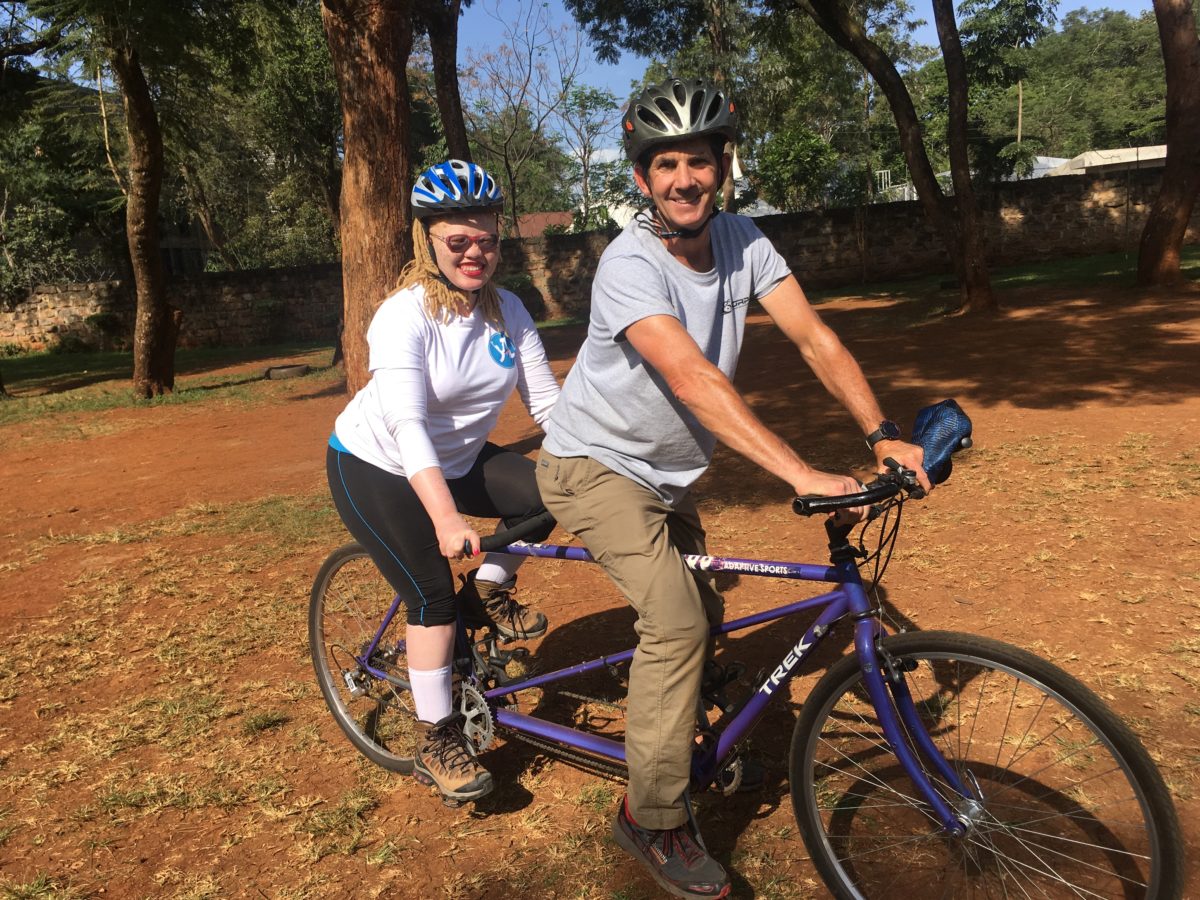
The U.S. Department of State and IREX are pleased to announce the 71 Americans selected to participate in the Mandela Washington Fellowship for Young African Leaders’ Reciprocal Exchange Component.
The Reciprocal Exchange component provides Americans with the opportunity to travel to Africa to build upon strategic partnerships and professional connections developed with young Africa leaders during their Mandela Washington Fellowship in the United States. This Reciprocal Exchange encourages U.S. experts and leaders to work with Fellows they met in the United States to tackle critical issues, such as promoting peace, stability, and economic prosperity in both the United States and Africa, while contributing to U.S. public diplomacy efforts and strengthening mutual understanding.
Through these competitive awards, 71 U.S. leaders from 23 states and the District of Columbia will travel to 26 countries in Sub-Saharan Africa for up to four weeks throughout 2018. The Reciprocal Exchange will support diverse projects that address a wide array of global and local community challenges in both the United States and Africa.
Additionally, Reciprocal Exchanges create unique business opportunities for American Awardees, allowing them to test concepts in new markets. “This was my first time doing business in an emerging market, and I learned as much about the soft-skills and cultural considerations as I did about the practical and logistical differences,” says Lauren McDanell, who traveled to Madagascar in June 2018. Lauren, who is the Phoenix Director of Entrepreneur Initiatives for SEED SPOT said, “My role at SEED SPOT centers on training local community organizers and developing curriculum for entrepreneurs. This [Reciprocal Exchange] project involved training and developing curriculum for a new market, and it was invaluable for me to see how our concepts worked in an emerging market, where they translated well and where they struggled.”
American Awardees selected for the 2018 Reciprocal Exchange grants come from across the United States, traveling to the following destinations across Sub-Saharan Africa:
Arizona
- Lauren McDanell (Madagascar), business/entrepreneurship
- Josh Neuroth (Madagascar), technology/telecommunications
- Kristin Romaine (Rwanda), women’s and girls’ issues
- Dana Newell (Rwanda), children and youth
California
- Kurt Kornbluth (Côte d’Ivoire), energy
- Gregory Milano (Kenya), disability rights/issues
- Timothy Weekes (Madagascar), business/entrepreneurship
- Catherine Callahan (Nigeria), disability rights/issues
- Nicholas Bowden (Rwanda), energy
- Caroline Lehman (South Africa), education
Colorado
- Sarah Dunn Philips (Zambia), business/entrepreneurship
- Elizabeth Hallgren (Zambia), education
Delaware
- Chandra Pitts (Ghana), women’s and girls’ issues
District of Columbia
- Samia Lalani (Kenya), LGBTQI issues
- Duane Rollins (Kenya), business/entrepreneurship
- Johanna LeBlanc (Zimbabwe), education
Florida
- David Lockett (Nigeria), education
Illinois
- Tiffany Smith (South Africa & Tanzania), business/entrepreneurship
Indiana
- Dustin Mix (Malawi), business/entrepreneurship
- David Wilson (Nigeria), engineering
- Scott Massey (Togo), agriculture
Iowa
- Robert Mark Wolff Jr. (Ghana), agriculture
- Laura Kinnard (Nigeria), business/entrepreneurship
- Ebby Luvaga (Nigeria), agriculture
Kansas
- Odanov Eric Martin (Cabo Verde), leadership
- Tamara Bauer & Kaitlin Long (Ghana), leadership
- Donna McCurry (Uganda), health/public health/medicine
Maryland
- Louisa Nakanuku-Diggs (Botswana), technology/telecommunications
- Kathryn Coney (Kenya), agriculture
- Lawrence Musa (Nigeria), education
Massachusetts
- Rebekah Caylor (Angola), civil/human rights
- Alfred Forbes (Lesotho), business/entrepreneurship
- Stephanie Gottwald (South Africa), education
- Wing-Kai To (Uganda), education
Minnesota
- LeAnn Snow (Ghana), health/public health/medicine
- Okechukwu Ukaga (Nigeria), business/entrepreneurship
- Christopher Johnstone (Nigeria), education
- Barbara Jean Allen (Zambia), energy
Nebraska
- Andrew Zimbroff (Seychelles), business/entrepreneurship
Nevada
- Katherine Sawicki (Tanzania), disability rights/issues
New Jersey
- Keith Jones (Cameroon), democracy/governance
- Asenath Dande (Kenya), women’s and girls’ issues
- Emeka Onugha (Kenya), retail/sales
- Ronald Quincy (Swaziland, Tanzania, & Rwanda), women’s and girls’ issues
New York
- Electra Weston (Mauritania), women’s and girls’ issues
- Nyasa Hickey & Hannah McCrea (Nigeria), justice/legal/prison systems
- Eva Roca (Rwanda), women’s and girls’ issues
North Carolina
- Jesse Lutabingwa (Nigeria), grant writing
Ohio
- Sydney Franklin (Botswana), health/public health
- Khandakar Islam (Ghana), agriculture
- Daniel Lacks (Nigeria), engineering
- Dorene Miller (Zambia), agriculture
Oklahoma
- Anthony Cambas (Benin), business/entrepreneurship
Pennsylvania
- Daniel Filler (Ethiopia), justice/legal/prisons
- Brynn MacDougall (Kenya), women’s and girls’ issues
- Kira Mendez (Kenya), children and youth
- Kathleen Newell (Malawi), women’s and girls’ issues
- Lisa McBeth (Nigeria), health/public health/medicine
- Joseph DeCrosta (Zambia), disability rights/issues
Texas
- Alberto Altamirano (Chad), business/entrepreneurship
- Rick Reeder (Sudan), business/entrepreneurship
- Lynn Weir (Uganda), agriculture
- Alison Boland & Matthew Koshmrl (Zimbabwe), journalism/media/publishing
Virginia
- Dorie Gilbert (Ghana), women’s and girls’ issues
- Neal Piper (South Africa), community development
Wisconsin
- Jenny Faust (South Africa), government: civil service
- Gabriel Schlieve (Swaziland), disability rights/issues
- Travis Moore (Swaziland), health/public health/medicine
The Mandela Washington Fellowship, the flagship program of the Young African Leaders Initiative (YALI), empowers young African leaders through academic coursework, leadership training, mentoring, networking, professional opportunities, and local community engagement. From 2014 to 2018, 3,700 young leaders from every country in Sub-Saharan Africa have participated in the Fellowship. Since its inception, 125 Reciprocal Exchange projects have been awarded jointly to over 250 American professionals and African leaders representing 29 U.S. states, the District of Columbia, and 33 African countries.
The Mandela Washington Fellowship is sponsored by the U.S. Department of State with funding provided by the U.S. Government and administered by IREX.